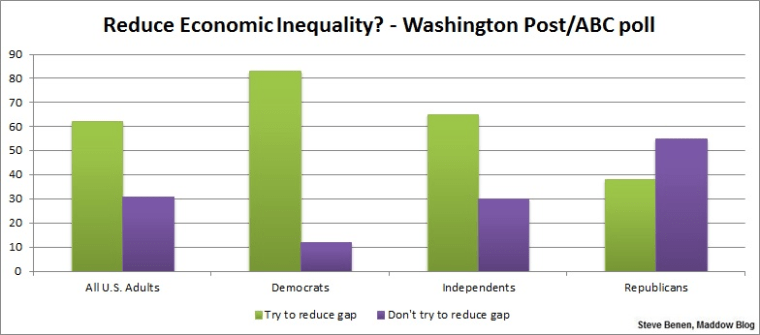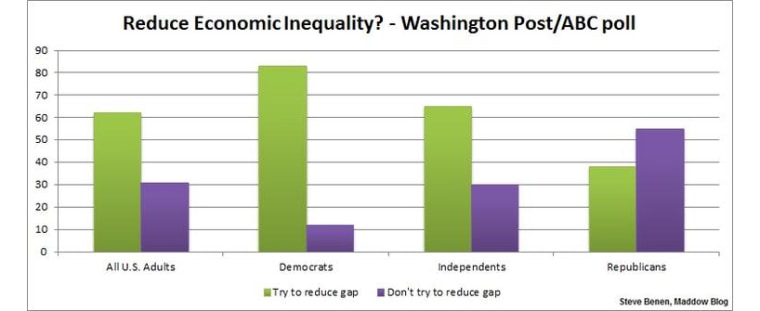
"Do you think the federal government should or should not pursue policies that try to reduce the gap between wealthy and less well-off Americans?"
With the gap between the rich and poor reaching levels unseen in generations, it's an important area of debate and I'm glad the poll included it. What's more, the results were pretty one-sided: among all American adults, 62% believe the government should try to reduce the wealth gap, while only 31% believe otherwise. That's a 2-to-1 advantage.
What's more, support for action in this area is quite broad. A majority of Americans regardless of race, for example, support actions to reduce the wealth gap. A majority of Americans regardless of age agree. Indeed, across the board -- gender, level of education, household income, geographic region -- there's a broad consensus that this is an issue worthy of national action.
But there are a just few exceptions.
When respondents are broken down by party, as the above chart shows, Democrats and Independents support efforts to address the wealth gap, but for Republicans, it's reversed -- most GOP voters don't want the government to try at all.
When broken down by ideology, liberals and moderates support action, but conservatives don't.
And when broken down by religion, every faith tradition wants to reduce wealth inequality, except white evangelical protestants, who are evenly split on the issue.
Looking at the top-line results, it's tempting to think Republican policymakers and candidates are foolish to ignore an issue with such broad public backing, but the details matter -- Republicans are listening to their base, who vote in primaries, and who are content to see the wealth gap continue to grow without any attempts at federal intervention.
